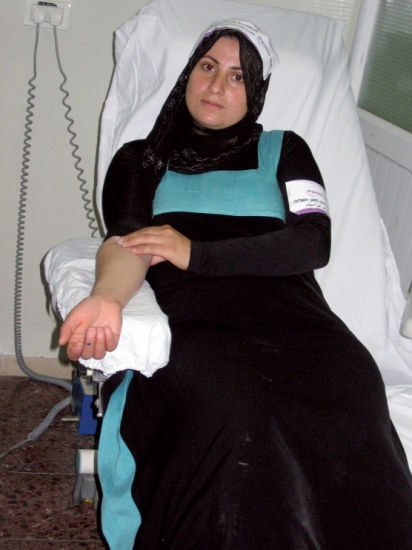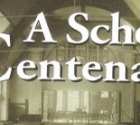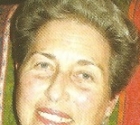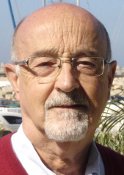
A few months ago, we watched, from the safety of our living rooms, the fierce battles taking place in Gaza between supporters of Fatah and Hamas. Some of us probably thought to ourselves:
“Great. Now maybe they won’t have the time to fire their rockets at Sderot.”
Or maybe, when the scene changed to an anguished Palestinian father cradling his wounded child, while the newsreader reported a shortage of blood at local hospitals:
“Unfortunate, but would any of them give a damn if it were Jews wounding Jewish children.”
Such were the initial reactions of Dr. Chen Nardi, a counselor and initiator of many projects in the general field of inter-personal relations but even as he internalized them, he worried. He worried that he could no longer feel pity, he feared the automatic response that whatever is bad for the Arabs must be good for the Jews, that all the Arabs are the same, that all they want to do is to destroy us. But above all he worried about the conclusions he might reach were he to overcome those fears. Suddenly he remembered the Arab child who had been killed by IDF fire and whose parents donated his organs for transplant into the bodies of Jews. They didn’t let their accounts with the enemy ‘occupiers’ interfere with their basic humanity. Nardi wondered if he could donate his blood to the ‘enemy’, and was immediately shocked by the very thought. Primarily he was afraid of what people would say: “Arab-lover, leftist, traitor, idiot and (worst of all) naïve dreamer. Are you out of your mind? Give blood to Arabs in Gaza, who only want to throw us into the sea? Would any of them give you their blood if the situation was reversed?”
After 22 years with the IDF, Lt. Colonel Chen Nardi (Ret.) had seen and done it all and had parted with the illusion that the application of overwhelming force could ever create the conditions for a settlement of the disputes with our neighbors. Now he was searching for other ways to reach hearts and minds. So what was he to do about the scenes on his television screen? He decided to act immediately before all the old fears took control.
Nardi telephoned Hassan, an acquaintance in Umm al-Fahum, and asked him to find out where he could donate blood to those wounded in Gaza. Hassan was overwhelmed. He thanked Nardi, and later called him back to tell him that Al Maqassed Islamic Hospital in East Jerusalem would be happy to accept his blood donation. Furthermore, Hassan could put him in touch with Arabs willing to make a matching gesture, and donate their blood to Jews.
After checking that a branch of Magen David Adom in West Jerusalem would receive blood donations from all, Nardi, together with the Coalition of Women for Peace, organized a busload of donors and sympathizers, both Jews and Arabs. The group included one Jewish couple who made a point of identifying themselves as right-wingers and who insisted on being interviewed by accompanying representatives of the media. Nardi felt gratified by the confirmation that pity and humanity were not the exclusive monopoly of the left.
At Al Maqassed Islamic Hospital the director of the blood bank stood by biting his lips as one of the Jewish participants addressed him in Arabic: “We have come, Jews and Arabs, to donate blood in order to save life and as a protest against the spilling of blood on both sides in this land of ours.” The medical staff was very professional, taking tests in order to verify the suitability of the donors, and ruling out one whose hemoglobin was too low. However the reception was reserved, with no feeling conveyed that the group had fulfilled some sort of critical need. It was as if they were telling the visitors not to feel that they had ‘saved’ anyone or that the Arab community could not manage without them.
An accompanying photographer said to one of the Muslim women in the group: “Do me a favor, donate your blood here because I just don’t have the time to come and photograph you in West Jerusalem.” The woman replied: “I understand your problem, but today I have come to donate blood to Jews, not Arabs.” Nardi was deeply impressed by this woman’s statement, made as it was without hesitation and without any sense of sacrifice. How he wished that it could be heard throughout Israel, so that it might do something to alleviate the fear of another Holocaust that haunts us and which prevents us from hearing any voices of trust and peace emanating from the Arab side.
What was it about this mutual gesture that made a Jewish right-winger donate his blood to Arabs and a Muslim woman insist on donating her blood only to Jews? Nardi felt that the principle message was that the ‘occupier’ and the ‘occupied’ donated their most precious asset, their own blood, each to the other and thus in a sense they freed themselves from the roles of one who sacrifices and his sacrificial victim, roles that have been imposed on them without them asking. He thought to himself that perhaps if political leaders were to do the same, a solution to political problems could quickly be found.
While the general reaction of those observing this mutual gesture was appreciative, both in East Jerusalem and later at MDA in West Jerusalem, there were also other voices: “Be careful with their blood, they might be trying to infect us with AIDS”, warned one Jewish passer-by. “They are giving us their blood but who knows what else they are giving us with it”, murmured an Arab on-looker.
The reserved reaction and expressions of suspicion from both sides reflected the reality of our times. Neither side is ready or willing to be ‘bought’ by the other, neither is willing to have its fundamental perceptions and concepts challenged so directly. But if just one person was moved to stop and think for a moment…
Nardi relates: “Our bus driver, a resident of a village adjoining Umm el-Fahum, had been very quiet during the entire trip. As we were about to leave Jerusalem, he came up to me and, with great emotion, he said that he wanted to tell me something. He said that he had been a security prisoner for years. He had then left and had been out of Israel for a long time. He said that he had been totally dumbfounded this day, and that he had had no idea that Jews like us existed.”
It will be easy for some to dismiss Dr. Chen Nardi’s initiative as typical bleeding-heart liberal naivety. However, whatever our political views, if we lose our humanity, we lose everything. Whether or not the gesture was timely or effective, it was certainly well intended, and if only because of the reaction of one Arab busdriver, the story needed to be told.
-1372404808.jpg) Freda Keet at ESRA Tel Aviv
Freda Keet at ESRA Tel Aviv-1372524003.jpg) the key question
the key question -1372523803.jpg) Volunteering this year- English for Schools
Volunteering this year- English for Schools A School Centenary
A School Centenary Train Trips
Train Trips-1451900978.jpg) The Agunah- The Deserted Wife
The Agunah- The Deserted Wife Ilan Shachar
Ilan Shachar